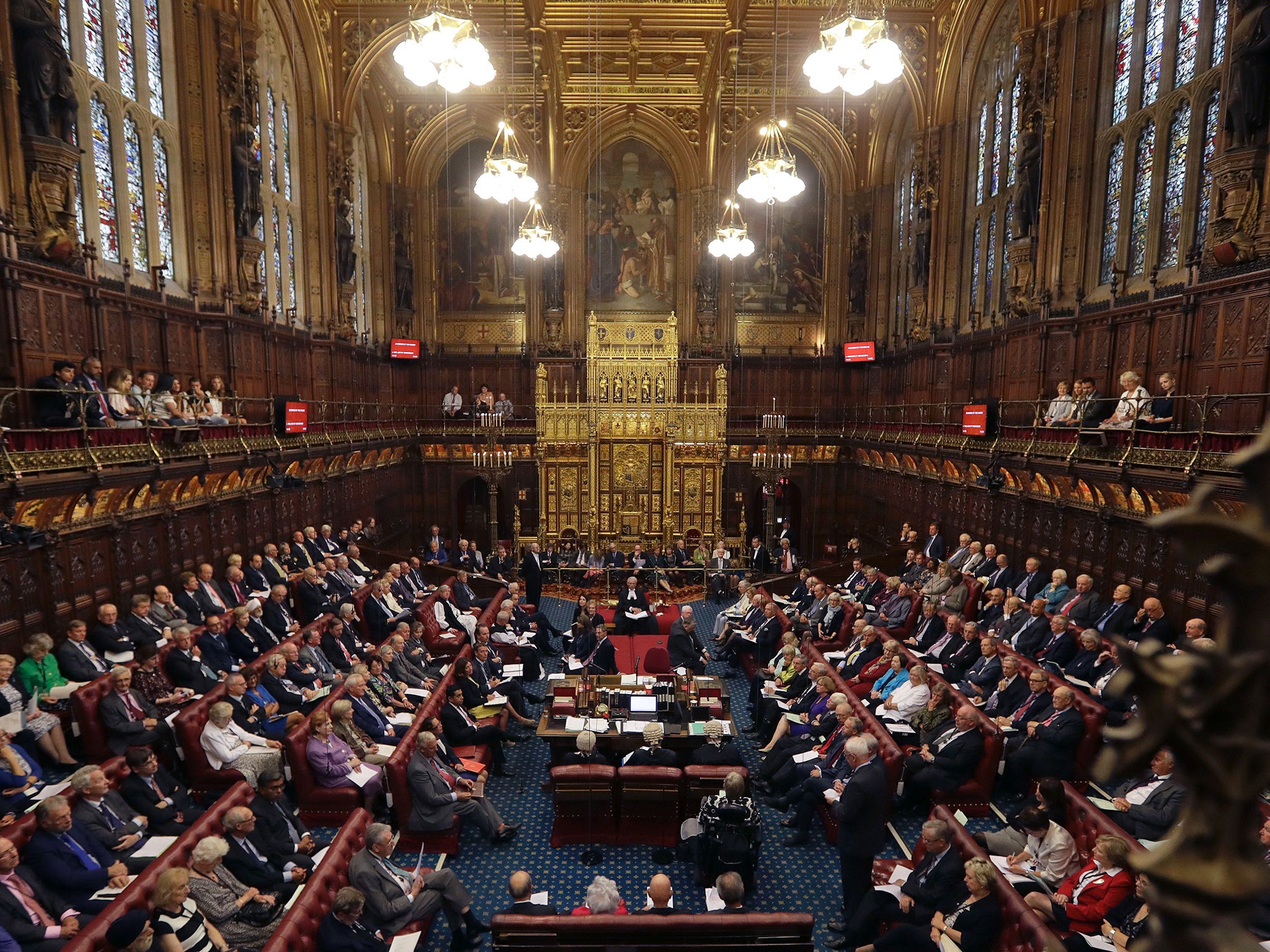May's Brexit bill is 'constitutionally unacceptable' and gives too much power to ministers, Lords report warns
Peers will debate the EU (Withdrawal) Bill this week in what could be a significant hurdle for the crucial legislation

Your support helps us to tell the story
From reproductive rights to climate change to Big Tech, The Independent is on the ground when the story is developing. Whether it's investigating the financials of Elon Musk's pro-Trump PAC or producing our latest documentary, 'The A Word', which shines a light on the American women fighting for reproductive rights, we know how important it is to parse out the facts from the messaging.
At such a critical moment in US history, we need reporters on the ground. Your donation allows us to keep sending journalists to speak to both sides of the story.
The Independent is trusted by Americans across the entire political spectrum. And unlike many other quality news outlets, we choose not to lock Americans out of our reporting and analysis with paywalls. We believe quality journalism should be available to everyone, paid for by those who can afford it.
Your support makes all the difference.An influential group of peers have warned Theresa May’s flagship Brexit legislation is “constitutionally unacceptable” and will need to be substantially rewritten.
The stark warning comes as peers in the upper chamber gear up to begin the lengthy process of debating the legislation – passed with a seal of approval from the Commons earlier this month.
The EU (Withdrawal) Bill seeks to transpose all existing EU law onto the UK statue book in time for Britain formally leaving the bloc in March 2019.
More than 180 members are already lined up to speak during the two-day debate accompanying the legislation’s second reading this Tuesday and Wednesday, and there are likely to be impassioned interventions from both prominent Leave and Remain voices.
But peers on the Lords Constitution Committee warn in a report to be released on Monday that, while the legislation is necessary to ensure legal continuity after Brexit, it has “fundamental flaws” in its current state.
The committee claims that at present the bill risks “undermining the legal certainty it seeks to provide” and gives “overly broad” powers to government ministers.
Baroness Taylor of Bolton, who chairs the committee, said: “We acknowledge the scale, challenge and unprecedented nature of the task of converting existing EU law into UK law, but as it stands this bill is constitutionally unacceptable.
“In our two previous reports we highlighted the issues this raised and we are disappointed that the Government has not acted on a number of our recommendations.
“However, we identify a number of practical ways in which the flaws in the bill can be addressed in line with existing constitutional principles and without compromising the Government’s aims. We look forward to a constructive engagement with the Government on our recommendations.”
Speaking ahead of the Lords debates on ITV’s Peston on Sunday, the leader of the Lords Baroness Evans said the Government would “listen” to amendments brought forward by peers.
“I don’t think it’s going to be complicated,” she said. “I think it’s going to be challenge, I wouldn’t be being honest if I didn’t say that but, you know, we passed the referendum bill, we passed the Article 50 bill. Everyone at that point said the Lords won’t let it happen – we did, we did our job.
“And our job is scrutinising and revising. The [House of] Lords is there to scrutinise and revise legislation, that’s not the same as blocking, that’s about asking questions.”
But the shadow leader of the Lords, Labour peer Baroness Smith of Basildon, said her party would “change this bill so it becomes an enabling measure for, rather than an obstacle to, a transition period, as it currently the case”.
She added: “Labour has consistently called for a transitional period based on current terms, including a temporary extension to our participation in the single market and customs union. This would prevent a cliff edge for consumers and businesses in March 2019, and provide additional time to finalise the future UK-EU relationship.”
When the legislation passes its second reading in the Lords it will then go to 10 days on the floor of the House at committee stage before passing to report stage after the Easter recess. It is at report stage when the vast majority of votes occur in the upper chamber.
Join our commenting forum
Join thought-provoking conversations, follow other Independent readers and see their replies
Comments